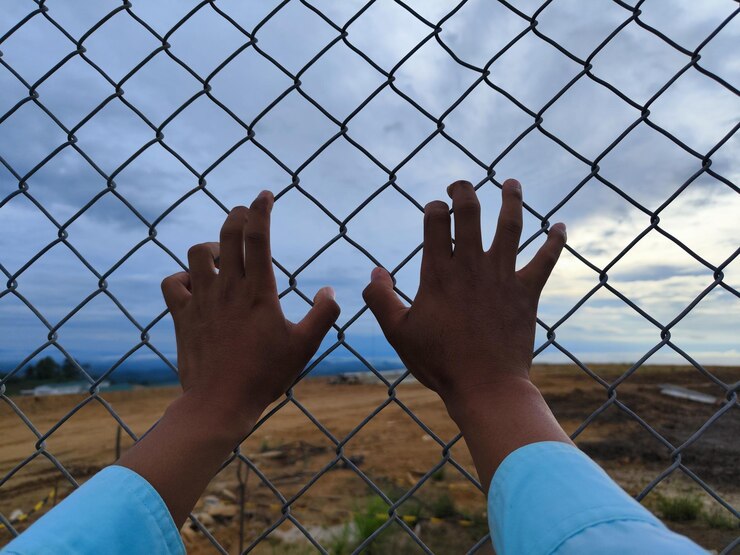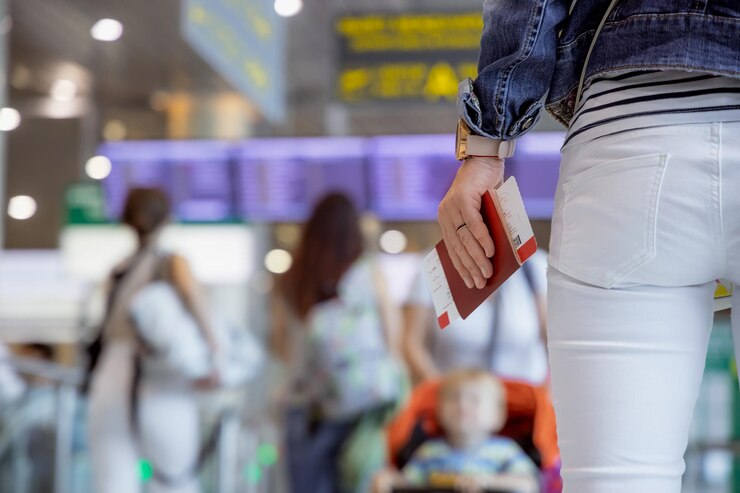-
Retomada do ‘Insight’ promove expansão do empreendedorismo em Orlando - 22/05/2023
-
Orlando sai à frente na Flórida: 4 restaurantes recebem a estrela Michelin - 18 hours ago
-
Equipe brasileira surpreende e conquista 1º lugar no “Mundial de Robótica” - 18 hours ago
-
Famílias tentam barrar construção de casas para idosos; entenda o impasse - 18 hours ago
-
Animais em extinção, atrações da ‘Exposição Life’ no ‘Orlando Science Center’ - 2 days ago
-
‘Estamos em apuros’, denunciam moradores de Osceola que sofrem com inundações - 2 days ago
-
‘Dia da Terra’ mobiliza Distritos de Orlando para reciclagem e limpeza comunitária - 2 days ago
-
‘Universal Orlando’ oferece dois dias grátis de diversão para residentes da Flórida - 20/04/2024
-
Senado da Pensilvânia aprova ‘Projeto de Lei’ que pune imigrantes infratores - 20/04/2024
-
Com Wagner Moura, ‘Civil War’ lidera bilheterias dos EUA e surpreende críticos - 20/04/2024
-
‘CFBACC Summit 2024’ consolida o maior encontro de empresas e empresários - 19/04/2024
Governo americano planeja reduzir em 40% tempo de concessão de vistos para turistas
Carolina Pimentel* Repórter da Agência Brasil
Brasília – O presidente dos Estados Unidos, Barack Obama, assinou no dia 19 de janeiro ordem executiva com medidas para estimular o turismo no país. Quem sai ganhando é o turista brasileiro. De olho na classe média do Brasil, da China e Índia, o governo norte-americano prevê simplificar e reduzir em 40% o tempo de concessão de vistos para turistas dos três países, segundo informações divulgadas no site oficial da Casa Branca, sede do governo dos Estados Unidos.
A meta é entrevistar 80% dos candidatos em até três semanas após o pedido de visto. Outra ideia em teste é isentar viajantes brasileiros e chineses da entrevista para concessão do visto, desde que sejam classificados como de “baixo risco” pelo Departamento de Segurança, como em caso de pedido de renovação do documento.
Com as iniciativas de estímulo ao turismo, Obama espera movimentar a economia do país, que enfrenta dificuldades. O turismo representa 2,7% do Produto Interno Bruto (PIB) e é responsável por 7,5 milhões de empregos nos Estados Unidos, conforme dados de 2010. Calcula-se a criação de 1 milhão de empregos na próxima década, se mais turistas estrangeiros escolherem os Estados Unidos como destino de viagem.
“A cada ano, 10 milhões de turistas de todo o mundo visitam a América. Quanto mais pessoas visitam a América, mais norte-americanos voltam ao mercado de trabalho”, disse Obama, no parque da Disney World, na Flórida.
Os chineses e brasileiros estão entre os turistas que mais gastam, de US$ 5 mil a US$ 6 mil por viagem. Em 2011, os consulados americanos emitiram 1 milhão de vistos na China e 800 mil no Brasil, crescimento de 34% e 42% respectivamente.
* Com informações do site da Casa Branca, sede do governo dos Estados Unidos
Edição: Nádia Franco//Matéria ampliada às 18h16
Leia abaixo a Executive Order do Presidente Obama (em inglês apenas)
Executive Order — Establishing Visa and Foreign Visitor Processing Goals and the Task Force on Travel and Competitiveness
By the authority vested in me as President by the Constitution and the laws of the United States of America, and to improve visa and foreign visitor processing and travel promotion in order to create jobs and spur economic growth in the United States, while continuing to protect our national security, it is hereby ordered as follows:
Section 1. Policy. The travel and tourism industry is one of our Nation’s leading service sectors and sources of exports. However, the U.S. market share of spending by international travelers fell from 17 percent to 11 percent of the global market from 2000 to 2010, more than a 30 percent decrease in our share of the global market. This decrease was due primarily to increased international competition, changing patterns in global development, and, to some degree, more stringent security requirements imposed after 2001. Given the importance of the travel and tourism industry to the U.S. economy and job creation, a coordinated policy, consistent with protecting our national security, is needed to support a prosperous and secure travel and tourism industry in the United States.
Steady progress has been made since 2010, when my Administration launched the National Export Initiative and the Travel Promotion Act was signed into law. While our processes for moving people and goods across our borders are now both more secure and more efficient, new initiatives are needed to enable us to better capitalize on the economic opportunities presented by a dynamic 21st century travel and tourism industry.
Sec. 2. Visa and Foreign Visitor Processing. (a) The Assistant to the President for Homeland Security and Counterterrorism shall, consistent with Presidential Policy Directive 1 or any successor documents and in coordination with the Assistant to the President and Cabinet Secretary, maintain an interagency process for coordinating the implementation of regulatory improvements and the evaluation of legislative proposals to enhance and expedite travel to and arrival in the United States by foreign nationals, consistent with national security requirements.
(b) The Secretaries of State and Homeland Security, in consultation with the Assistant to the President for Homeland Security and Counterterrorism, the Director of the Office of Management and Budget, and the heads of such agencies as appropriate, shall develop an implementation plan, within 60 days of the date of this order, describing actions to be undertaken, including those that build upon efforts underway, to achieve the following:
(i) increase nonimmigrant visa processing capacity in China and Brazil by 40 percent over the coming year; (ii) ensure that 80 percent of nonimmigrant visa applicants are interviewed within 3 weeks of receipt of application, recognizing that resource and security considerations and the need to ensure provision of consular services to U.S. citizens may dictate specific exceptions;
(iii) increase efforts to expand the Visa Waiver Program and travel by nationals of Visa Waiver Program participants; and
(iv) expand reciprocal recognition programs for expedited travel, such as the Global Entry program.
This plan should also identify other appropriate measures that will enhance and expedite travel to and arrival in the United States by foreign nationals, consistent with national security requirements, as well as any potential challenges in achieving the stated goals of this subsection.
(c) Within 180 days of the date of this order, and periodically thereafter, the Secretaries of State and Homeland Security shall jointly submit through the Assistant to the President for Homeland Security and Counterterrorism a report to the President describing the progress on achieving the goals set forth in this section (as well as areas of concern or barriers to achieving those goals) to ensure the country remains secure while increasing travel and tourism to the United States.
(d) The Secretary of Commerce shall establish and maintain a publicly available website that provides updated metrics from across the Federal Government to assist industry and travelers in understanding the current status of the industry and its relevance to the economy, statistics on visa processes in key travel and tourism markets, and entry times into the United States.
Sec. 3. Task Force on Travel and Competitiveness. (a) A Task Force on Travel and Competitiveness (Task Force) is hereby established to develop the National Travel and Tourism Strategy described in this section. The Secretaries of Commerce and the Interior shall serve as Co-Chairs of the Task Force. The Task Force shall also include the heads of the following executive departments and agencies (agencies), or senior level officials designated by them:
(i) Department of State; (ii) Department of the Treasury; (iii) Department of Agriculture; (iv) Department of Labor; (v) Department of Transportation;
(vi) Department of Homeland Security; (vii) Army Corps of Engineers; (viii) Office of the United States Trade Representative; (ix) Export-Import Bank; and (x) Other agencies invited to participate by the Task Force Co-Chairs.
(b) The Secretaries of Commerce and the Interior, in consultation with the Director of the Office of Management and Budget, the Assistant to the President for Homeland Security and Counterterrorism, the Assistant to the President for Economic Policy, and the Assistant to the President for Domestic Policy, shall coordinate the overall work of the Task Force and assist its members in performing the responsibilities described herein.
(c) The Task Force shall develop a National Travel and Tourism Strategy with recommendations for new policies and initiatives to promote domestic and international travel opportunities throughout the United States with the goal of increasing the United States market share of worldwide travel, including obtaining a greater share of long-haul travel from Brazil, China, and India. Such recommendations shall include, among other things, strategies to promote visits to the United States public lands, waters, shores, monuments, and other iconic American destinations, thereby expanding job creation in the United States. The Task Force shall also consider recommendations to promote and expand travel and tourism opportunities in rural communities. In addition, the National Travel and Tourism Strategy shall identify any barriers to increasing the United States market share of worldwide travel, and any other related areas of concern. The Task Force shall deliver the National Travel and Tourism Strategy to the President within 90 days of the date of this order.
(d) The Task Force, through the Secretary of Commerce, shall also coordinate with the Corporation for Travel Promotion (currently doing business as Brand USA, a non-profit corporation established by the Travel Promotion Act of 2009 to promote travel to the United States) and the Tourism Policy Council, established by the United States National Tourism Organization Act of 1996. The Secretary of Commerce shall serve as the liaison between the Task Force and the United States Travel and Tourism Advisory Board (Board) chartered by the Secretary and shall consider the Board’s advice in his or her role with the Task Force.
(e) The Tourism Policy Council coordinates policies concerning travel promotion and ensures consistency and cooperation among agencies, as set forth in the United States National Tourism Organization Act of 1996. The Task Force shall consult with the Tourism Policy Council where appropriate to facilitate the development of the National Travel and Tourism Strategy.
Sec. 4. General Provisions. (a) This order shall be implemented consistent with applicable law, and subject to the availability of appropriations.
(b) Nothing in this order shall be construed to impair or otherwise affect:
(i) the authority granted by law to an executive department, agency, or the head thereof; or
(ii) the functions of the Director of the Office of Management and Budget relating to budgetary, administrative, or legislative proposals.
(c) This order is not intended to, and does not, create any right or benefit, substantive or procedural, enforceable at law or in equity by any party against the United States, its departments, agencies, or entities its officers, employees, or agents, or any other person.
BARACK OBAMA



















